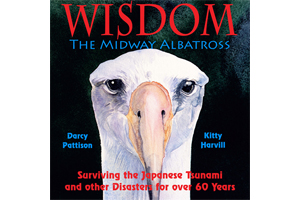My bio officially reads like this: Author, blogger, and writing teacher Darcy Pattison (www.darcypattison.com) has been published in eight languages.
How do those foreign language books come about? It depends.
Your book contract included world rights. It all depends on your book contract. If you signed a contract that allowed world rights in all languages, then the publisher has the right to exercise those rights, or not. The easiest way for publishers to do this is to attend the Bologna (Italy) Children’s Book Fair, where publishers worldwide gather to make deals. You’ll find publishers who specialize in children’s books, or larger publishers with strong children’s imprints. It’s here that deals were made for my books in Swedish, Danish, Norwegian, Spanish, Taiwanese Chinese, German and Arabic for an Egyptian company. Here’s one report on the 2013 Children’s Book Fair. It will be held March 24-27 in 2014.
Generally, authors can’t do much to encourage their book’s translation rights sales; it’s up to the Rights people at the publisher, or to your agent.
Your agent kept world rights. Some agents reserve the foreign language rights and only negotiate contracts for “first North American English Language rights” or some variation of that. That means they can sell each language separately. Often agents will attend the Bologna Book Fair. But sometimes, they work with a foreign agent, a well-respected agency for a certain country. In this case, agents generally split royalties with the foreign agent, so your agent may ask for a larger percentage of these type sales.
Your book contract does not include world rights, but you want to publish in another country. These days, you do have options for publishing in other countries yourself. For indie publishers, or if you are traditionally published, but you want to self-publish in another language, you can use a variety of services. For example, Kindle sells to France, Germany, Italy, Portugal, Spain, Japan and India. Of course, this means you must have the book translated yourself and that may be daunting because it takes someone with specialized skill to translate a literary work. It’s not just a matter of straight translation, but of making the text sound as good in the second language as it does in English.
The biggest problem with a Kindle version is marketing. Once the book comes out (in English or the native language), how will you market it? Do you know enough about other country’s economies to know how to advertise and sell there? If you merely make it available, with no marketing, sales will dribble in and the project may not be worth your time invested.
 IBooks, through itunesconnect.apple.com has one of the widest distribution systems. Using Apple’s free iBooksAuthor program, you can create an iBook version of your story, and upload it to 51 countries. Here’s my book, WISDOM, THE MIDWAY ALBATROSS on the IBookStore, which allows a download to your iPad. It is also available worldwide. Sounds cool to say that, doesn’t it? (Well–it’s only available in an English language translation, but hey, still sounds good.)
IBooks, through itunesconnect.apple.com has one of the widest distribution systems. Using Apple’s free iBooksAuthor program, you can create an iBook version of your story, and upload it to 51 countries. Here’s my book, WISDOM, THE MIDWAY ALBATROSS on the IBookStore, which allows a download to your iPad. It is also available worldwide. Sounds cool to say that, doesn’t it? (Well–it’s only available in an English language translation, but hey, still sounds good.)
Just the logistics of translation and marketing in a foreign country scare off most authors. But–it is possible.